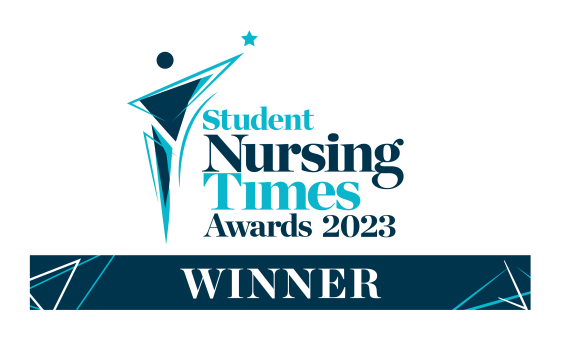
Community Nursing Specialist (District Nursing)
A level 7 PGDip Apprentice for nurses seeking to qualify in the field of district nursing.
Employers and Apprentices Information
Employers
- Developed with employers, this programme has been designed to meet the contemporary health and wellbeing needs of individuals, communities and populations
- Apprentices learn to care for patients with a wide range of health conditions
- Funding available through the apprenticeship levy and further support may be available from Health Education England
Our employers say
“I would recommend degree apprenticeships to any business able to provide them. Apprenticeships provide well trained, ambitious members of staff that are invested in your company,” says Daniel Crook of Blackpool Teaching Hospitals.
Apprentices
- Designed specifically to enhance your existing nursing skills and lead to Nursing and Midwifery Council (NMC) registration* as a District Nurse
- Receive a Postgraduate Diploma for Community Nursing Specialist Practitioner Qualification in the field of District Nursing with Integrated Independent and Supplementary Prescribing (V300)
- 12-month programme (plus end-point assessment) based at the state-of-the- art, award-winning £139m Brooks building
- Option to Top Up to MSc Specialist Community Practice
Our apprentices say
“The Community Nursing Specialist Practitioner Apprenticeship has been a great experience. It has enabled me to understand the wider picture, to look outside of district nursing, and to identify problems outside of my normal perspective,” says Karis Macaulay of the Manchester University NHS Foundation Trust.
About this Programme
Developed with employers, this 12-month programme (plus end-point assessment) has been designed to meet the contemporary health and wellbeing needs of individuals, communities and populations. Apprentices will strengthen their leadership attributes; become skilful specialist practitioners; and learn how to lead and bring about change in their practice environments.
This programme is designed to provide apprentices with the required knowledge, skills and behaviours to work as a Community Nursing Specialist Practitioner in the field of District Nursing.
To find out more about how you can partner with us to offer degree apprenticeships within your organisation, fill out our contact form. You can also get in touch by phone on 0161 247 3720 (9:30am - 4:00pm Monday to Friday) or by email at apprenticeships-employer@mmu.ac.uk.

-
Programme content
This level 7 programme is suitable for existing nurses that are looking to further their knowledge and career in caring for patients with a wide range of health conditions.
In their daily work, an employee in this occupation interacts with patients, their carers and relatives and a wide variety of health and social care professionals including GP’s, social workers and hospital staff. District Nurses work with adults of all ages and communities. They work across numerous different organisations and settings, for example; primary care, social care, third sector organisations, hospitals including mental health, hospices, prisons and other community services to ensure that patients get the right care, at the right time, every time.
Units include:
- Advancing Practice using Research
- Assessing Adults in Specialist Practice
- Empowering Populations to Enhance Health and Wellbeing
- Independent Study Project in Specialist Practice*
- Influencing District Nursing
- Non-Medical Prescribing (V300)
- Quality Leadership in Action
- Responding to Contemporary Issues
- Specialist Practice of District Nursing
*This unit will only be taken if the apprentice has V300 qualification at Level 6.
Optional MSc Top Up:
- MSc Specialist Community Practice (Top Up)
- Dissertation with Research Methods
-
Programme length and approach
The programme runs for 12 months and is followed by one month end-point assessment period.
It is delivered via a combination of blended learning (including face to face sessions, virtual sessions and directed study) and work-based learning, supported by a Practice Assessor and Practice Supervisor as per the Nursing and Midwifery Council (2018) Standards for Student Supervision and Assessment).
It is delivered by a core programme team with a strong focus on supporting apprentices across all aspects of the programme.
-
Qualifications awarded
All successful graduates receive a Postgraduate Diploma for Community Nursing Specialist Practitioner Qualification in the field of District Nursing with Integrated Independent and Supplementary Prescribing (V300) at Level 7. Graduates also receive a level 7 apprenticeship certificate.
If independent/supplementary prescribing (V300) is successfully passed, but the award/specialist practice qualification is failed, students will not receive either qualification.
-
Entry requirements
It is a requirement of the Nursing and Midwifery Council (NMC) that those training to become a District Nurse are already registered nurses on Level 1 of the NMC register.
Evidence of GCSE Mathematics and English Language (grade A*-C / 9-4), or equivalent, must be provided prior to application.
A list of acceptable equivalent qualifications is available from the gov.uk website, as well as guidance on obtaining replacement certificates. It will not be possible for applicants to proceed with their application unless they are able to provide evidence of achievement or proof that they have applied for replacement certificates.
Applicants must have the right of abode and right to work in the UK to qualify for funding.
-
Funding
Degree apprenticeships are paid for by employers, not apprentices.
Employers with a payroll of more than £3 million can use their apprenticeship levy contributions to pay for places on apprenticeship programmes.
Any business with a payroll below £3 million is eligible for government funding that will cover at least 95% of the cost of an apprenticeship programme.
Additional incentives are also available to employers who recruit new apprentices into their business.
A self-funded route (for fees only) is available subject to the Nursing and Midwifery Council revalidation. Please contact apprenticeships-employer@mmu.ac.uk for further information on this option.
-
Next steps
If you are an employer
We will support you every step of the way to offer apprenticeships at your organisation, whether you intend to upskill current employees or attract new recruits.
To find out more about how you can partner with us to offer degree apprenticeships within your organisation, fill out our contact form. You can also get in touch by phone on 0161 247 3720 (9:30am - 4:00pm Monday to Friday) or by email at apprenticeships-employer@mmu.ac.uk.
If you are an employee
If you are already employed, encourage your employer to contact us to discuss offering an apprenticeship.
If you are a student
Places on this programme are available to those already employed in a relevant position and where their employer will support them to take part.
I’m better able to appreciate the complexity of some patients. It’s taught me the value of seeing the whole person and of using my role as social prescriber, not just a medical nurse, to support patients’ wellbeing and increase my levels of care.
I’m better able to appreciate the complexity of some patients. It’s taught me the value of seeing the whole person and of using my role as social prescriber, not just a medical nurse, to support patients’ wellbeing and increase my levels of care.



